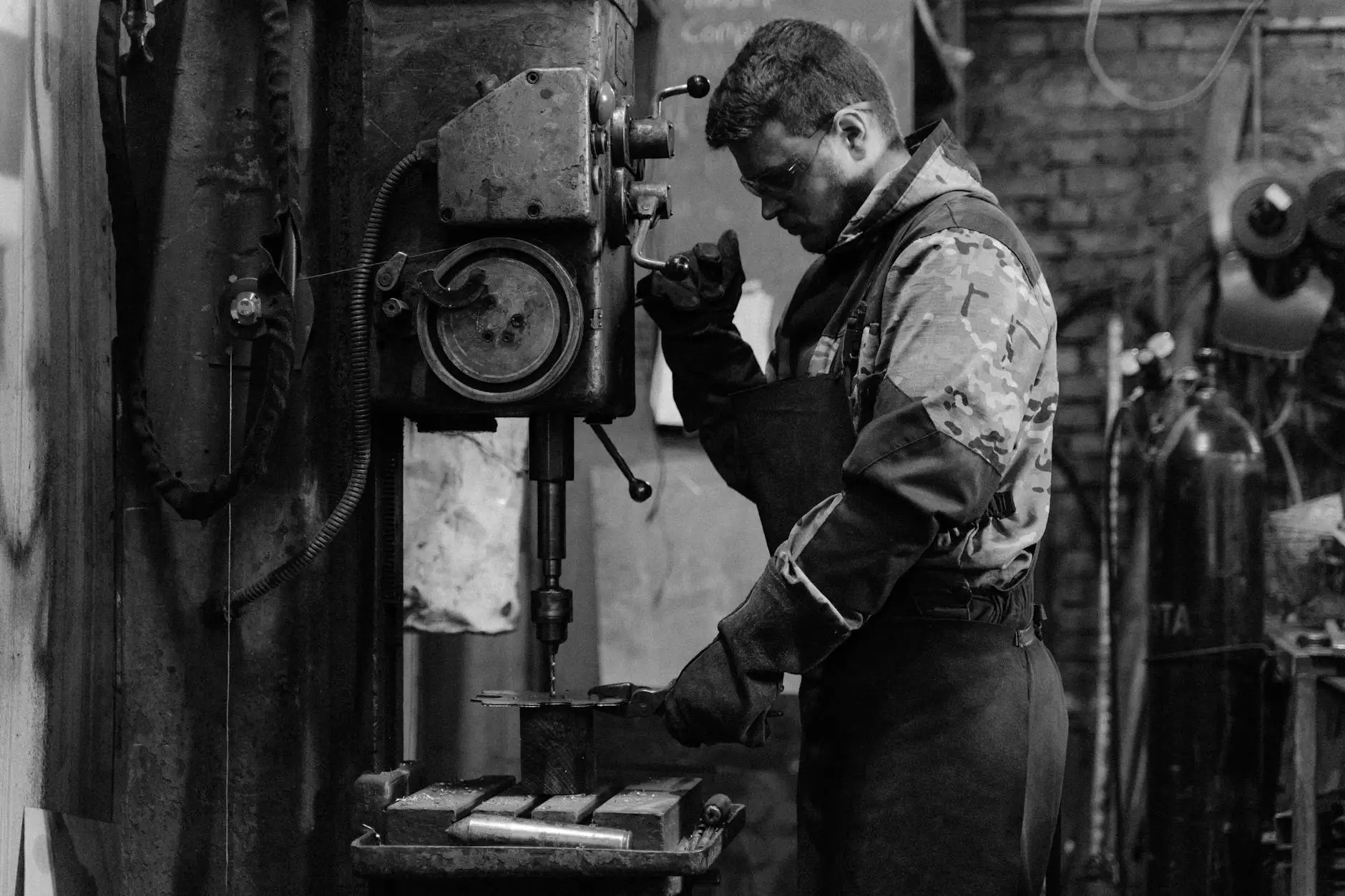The Indispensable Role of Auto Components Manufacturers

The automotive industry is a dynamic sector that is continuously evolving. At its heart, auto components manufacturers play a pivotal role in ensuring that vehicles are not only functional but also innovative and sustainable. This article delves into the critical aspects of auto components manufacturing, emphasizing their importance in the broader context of the automotive industry.
What Are Auto Components Manufacturers?
Auto components manufacturers are businesses that produce essential parts and systems for automobiles. These components range from engine parts to electrical systems, and they significantly influence a vehicle's performance, safety, and reliability. They serve as the backbone of the automotive supply chain, supplying original equipment manufacturers (OEMs) and aftermarket services.
The Scope of Auto Components Manufacturing
The scope of manufacturing in the auto components sector is extensive. It includes:
- Engine Components: Pistons, crankshafts, and camshafts.
- Body Parts: Doors, hoods, and panels.
- Electrical Systems: Wiring harnesses, batteries, and alternators.
- Transmission Parts: Gears, clutches, and drive shafts.
- Suspension Components: Shocks, springs, and control arms.
- Safety Systems: Airbag systems, seat belts, and braking systems.
Why Are Auto Components Manufacturers Vital to the Automotive Industry?
Auto components manufacturers are essential for several reasons:
1. Driving Innovation
As technology progresses, the automotive industry must adapt to meet new regulations and consumer expectations. Auto components manufacturers are at the forefront of this innovation, developing advanced materials and components that enhance vehicle performance and safety.
2. Ensuring Quality and Reliability
The reliability of a vehicle is largely determined by the quality of its components. Auto components manufacturers adhere to stringent quality standards to produce parts that can withstand the rigors of daily driving. This commitment to quality reduces the likelihood of vehicle failures and recalls, ultimately ensuring customer satisfaction.
3. Supporting Sustainability Initiatives
With increasing environmental concerns, the automotive industry is moving towards greener solutions. Auto components manufacturers are responding by producing lighter and more efficient parts, utilizing sustainable materials, and developing electric vehicle components. This shift not only reduces carbon emissions but also aligns with consumer preferences for eco-friendly products.
The Manufacturing Process of Auto Components
The process of manufacturing auto components involves several critical stages, each contributing to the overall quality and efficiency of the final product:
1. Design and Prototyping
The first step in the manufacturing process is designing the components. Engineers utilize computer-aided design (CAD) software to create precise specifications and prototypes. This stage is crucial for testing and refining components before mass production.
2. Material Selection
The choice of materials is vital in the production of auto parts. Auto components manufacturers select materials based on their properties, such as strength, weight, and cost-effectiveness. Common materials include steel, aluminum, plastics, and composites.
3. Manufacturing Techniques
Various manufacturing techniques are employed in the production of auto parts, including:
- Forging: Used for high-stress components to enhance strength.
- Casting: Ideal for complex shapes and designs.
- Molding: Commonly used for plastics and composites.
- Machining: Precision cutting and shaping of materials.
4. Quality Control
Throughout the manufacturing process, rigorous quality control measures are implemented to ensure that components meet industry standards. Testing includes dimensional checks, material inspections, and performance evaluations.
Challenges Faced by Auto Components Manufacturers
1. Supply Chain Disruptions
The global nature of the automotive supply chain means that manufacturers are susceptible to disruptions caused by geopolitical issues, natural disasters, and pandemics. These disruptions can lead to shortages of raw materials and delays in production.
2. Regulatory Compliance
As environmental regulations become increasingly stringent, manufacturers must adapt their processes and materials to comply with these standards. This can require significant investment in new technologies and processes.
3. Technological Advancements
The rapid pace of technological advancement poses both opportunities and challenges. Manufacturers must continually invest in new technologies to remain competitive and meet changing consumer demands.
Future Trends in Auto Components Manufacturing
The future of auto components manufacturers is being shaped by various trends that are likely to impact the industry:
1. Electrification of Vehicles
The shift towards electric vehicles (EVs) is reshaping the auto components manufacturing landscape. Manufacturers are focusing on producing components that support electric drivetrains, batteries, and charging infrastructure.
2. Smart Components
Integration of technology into components, such as sensor-equipped parts and connectivity, is becoming increasingly popular. Auto components manufacturers are developing smart components that improve safety and navigation.
3. Enhanced Automation
Automation is revolutionizing the manufacturing process, reducing costs, and improving accuracy. Robotics and artificial intelligence (AI) are being integrated into manufacturing lines, allowing for greater efficiency and speed.
4. Sustainable Manufacturing Practices
As sustainability becomes a central focus for consumers, auto components manufacturers are adopting eco-friendly practices, such as reducing waste, recycling materials, and utilizing renewable energy sources in production.
Conclusion
In conclusion, auto components manufacturers are a vital part of the automotive industry. Their role in driving innovation, ensuring quality, and supporting sustainability initiatives cannot be overstated. As the industry continues to evolve, these manufacturers will be at the forefront of new technological advancements and sustainability efforts, shaping the future of transportation.
By understanding the importance of auto components manufacturing, businesses and consumers alike can appreciate the complex processes and innovations that contribute to the vehicles we rely on every day. For quality auto parts and supplies, companies like imautoparts.com offer a wealth of resources and information that reflect the latest trends and standards in the industry.









